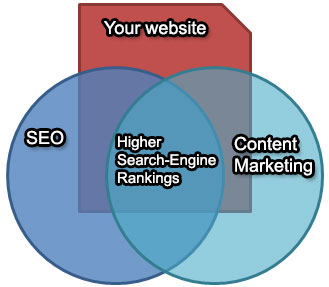With voice-to-text going mainstream on mobile phones and tablet PCs, more and more people will be using longer search expressions – something like asking questions in natural language – rather than using smaller keywords and search terms. Google’s Hummingbird Algorithm takes care of this rapidly evolving search trend even for its primary web search engine. It’s the biggest algorithm update since 2009. This was the time when they introduced “Caffeine”. The recent update, according to Google, impacts around 90% of the searches.

How does it affect your search engine rankings? How should you prepare your website content for this new ranking algorithm?
Isn’t it similar to what we have already been talking about, the longtail search traffic? To an extent, yes, but the Hummingbird algorithm uses the intelligence Google has been able to gather over all these years drawing inferences and conclusions according to the language used by its users. This Search Engine Land example illustrates it better []:
“What’s the closest place to buy the iPhone 5s to my home?” A traditional search engine might focus on finding matches for words — finding a page that says “buy” and “iPhone 5s,” for example.
Hummingbird should better focus on the meaning behind the words. It may better understand the actual location of your home, if you’ve shared that with Google. It might understand that “place” means you want a brick-and-mortar store. It might get that “iPhone 5s” is a particular type of electronic device carried by certain stores. Knowing all these meanings may help Google go beyond just finding pages with matching words.
In particular, Google said that Hummingbird is paying more attention to each word in a query, ensuring that the whole query — the whole sentence or conversation or meaning — is taken into account, rather than particular words. The goal is that pages matching the meaning do better, rather than pages matching just a few words.
Creating your content for Google’s Hummingbird algorithm
The best way of creating content for Google’s Hummingbird algorithm is not to create content for that and just focus on quality and the message that you want to deliver to your visitors. As you can read in the above quoted text, Google will no longer focus on keywords; taking care that it processes the entire meaning of the query or the long search expression that the user has used in a natural language. So if you search for, “Where can I find a content writer for my web design company around my area?” Google will try to find information exactly according to this question rather than simply throwing a page containing “content writer”, “web design company” and “my area”. This is because sometimes people randomly create articles and blog posts to cover different keywords without meaning to convey what actually needs to be conveyed. In order to find such information Google already has data about the user so “my area” is already known to Google and it throws up results accordingly.
To further stress the point – chucking the keyword business out – every search on Google will be secure now so the various analytics tools won’t be able to find out for which keywords you get your traffic.
So if you want to leverage Google’s Hummingbird algorithm prepare meaningful content that provides the right information to your prospective visitors. Don’t just create pages and blog posts for the sake of using your keywords. Here are a few things to focus on:
- Concentrate on answering particular queries and questions: Provide answers in a human language without overtly worrying about keywords. Keywords are important, after all they are words people are going to use, but they must relate to each other and they must make a sense according to the query being made or the question being asked. Remember that your keywords, your language should satisfy the context. According to the new algorithm, quality really matters along with the context.
- Be more specific with the title: Titles of your blog posts and webpages are still important. It hasn’t been proven what impact they will have according to the new algorithm, but it’s better to create them according to the expressions you expect people to use in order to find information that you are trying to impart.
- Develop your authorship influence: This has direct relationship with the quality of content that you publish on your own website, on social networking websites and on other forums. As an authority on your subject people respect you, watch for your content and share your content among their peers. This increases your influence and makes your content more trustworthy.
Again, creating content around probable questions and queries doesn’t mean you resort to creating content that doesn’t really have a meaning but repeats these queries and questions again and again. Focus on meaningfulness and provide real value. Google’s Hummingbird algorithm works on understanding the entire meaning of your page rather than individual keywords and search terms.


